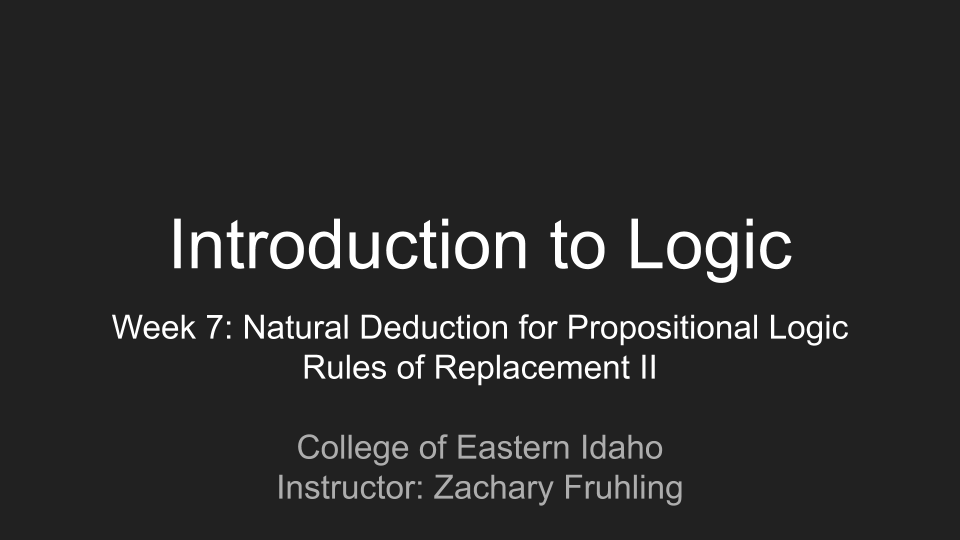The Least Philosophical Philosopher: The Highest Compliment I've Ever Received
Some years ago I was teaching philosophy at Cabrillo College in Aptos, California. The philosophy department chair at the time, Nancy Brown, gave me the best compliment I ever received as a philosopher. She once told me something to the effect that I was the “least philosophical philosopher” she had ever known. I, being myself, naturally took this as a compliment of the highest regard—although I don’t think she meant it as one!
I’m the first to champion the cause of abstract philosophy for its own sake. Like any philosopher, I can get off intellectually on abstract philosophical problems about the origin and nature of reality, free will and determinism, theories of consciousness and mental causation, metaphysics and ontology, and countless other philosophical problems that philosophers tend to spin their wheels and while away the precious hours of their lives trying to solve. I would even go so far as to say that a strong interest in abstractions like these is a necessary condition for being a philosopher in the first place. If you aren’t interested in philosophical problems for their own sake, you might as well pack it up as a philosopher and do something more practical with your mental life and career.
Although mere abstraction may be necessary for being a philosopher, however, it’s not sufficient. Philosophers can emphasize abstraction, their separation from world and from ordinary life, so much that they are no longer really living. They are little philosophical souls carrying their own corpses, as Marcus Aurelius, and Epictetus before him, might have said:
“You are a little soul carrying a corpse, as Epictetus says.” (Marcus Aurelius, Meditations, Book IV, No. 41)
Philosophy, for them, has become not an aid to life or the art of life, but an escape from life, an aspect of philosophy from Socrates onward—everything from Socrates’s arguments for the immortality of the soul and the philosopher’s subsequent asceticism described in Plato’s Phaedo dialogue—of which we later and wiser philosophers should be highly critical. Philosophers often forget that they are men and women first, human being first—with all that those descriptions entail—and philosophers only second. That is, they have forgotten how to live first and philosophize, to create our precious philosophical abstractions, only secondly.
Most philosophers tend to reverse the order of this operation; they philosophize first and then somehow (often futilely) try to really live after spending so much time in their own philosophical headspace, never fully seeing the ways in which philosophy itself has dried up the wellspring of life—the ways in which philosophy has made it impossible to go back to a time before the philosophical point of no return, to any sort of pre-philosophical immerisveness in the world, whether the species-specific modes of being that Nietzsche describes (echoing Darwin), a Heideggerian sense of genuinely “being-in-the-world” (in-der-Weld-Sein), or the radical freedom of Sartre and Camus to define your own life and make your own pre-philosophical—or even post-philosophical—subjective meaning.
Once you’ve crossed the threshold of being a philosopher, in the traditional sense, you can never go back. You can never again return to a pre-philosophical state, a natural consequence of Plato’s Allegory of the Cave (Republic, Book VII) in which the protagonist of the story—the philosopher who has broken free of his or her chains—has escaped the cavernous prison by means of the arduous crawl from darkness to sunlight and seen the shadows on the cave wall for what they really are, mere illusions and phantasms—is never able to return. After stepping into the light, it’s impossible to live once again in darkness, goes the story.
Yet the real danger of the Allegory of the Cave, and of being a philosopher in general, isn’t so much about returning to darkness, shadows, and chains; it’s about forgetting how to muster the inner strength to begin the climb in the first place, and to sustain the strength to keep on climbing instead of basking luxuriously in one’s own intellectual comfort outside the cave, like a well-fed house cat lazily soaking up the noonday sun, watching the mice and birds scurry and flitter by, still with some lingering species-desire but no willpower or fight to overcome the laziness and give real chase.
We philosophers have become foie gras, appetizing but unnatural—fattened calves ready only for slaughter. Some philosophers do manage to charge boldly and altruistically back into the cave to rescue their fellow prisoners. (Really, do we do anything else as philosopher teachers than drag our students kicking and screaming out of their own individual, cultural, and intellectual caves?) This itself takes a kind of courage, but only a relatively safe and comfortable kind. The contrast between Plato’s cave allegory and Nietzsche’s use of the mountaintop metaphor is striking. (See Nietzsche’s short poems Worldly Wisdom and Upward). While philosophers of any variety have managed to rally enough inner strength to climb their way outside a cave of darkness and illusions, it’s so easy to become complacent from then on and to forget that this is still only half of the journey of life. Nietzsche reminds us that, from there, we must set our sights not merely on the sunlight—those deceptively illuminating forms with which Plato was so obsessed—but on the mountains and pinnacles of life still to be scaled.
No, philosophers shouldn't just rest comfortably in the sunlight and commune with their comfortable forms. Nor should they be content running relays between enlightenment and darkness with the rhythms of each new academic term, however motivated we may be as philosophers to bring a few fellow prisoners along for the ride on our own philosophical journey—like philosophical hobos along for the ride on the cog railway journey upward and toward the mouth of the cave. Those rare individuals who are able to transcend darkness and glow in the light must regather their strength once again for the next leg of the journey, for Day 2 of the upward climb, and for each day that comes after.
We true philosophers—unlike our sun-soaked counterparts, those mere philosophical beach-goers—should not merely analyze concepts, but we should use them as stepping stones and mile markers, like the trail-marker cairns and ducks, piles of stones one encounters at key points along the unofficial trails of Yosemite’s high country, for the trails we blaze and leave behind us in real life, not merely to being along a few philosophical stragglers hitching themselves to our wagons, but performatively in the way we live, so all that come after are similarly emboldened with the courage to blaze their own unique life-trails in turn. This is philosophy as performance art, being a lean and muscular philosophical lion instead of a fat, lazy philosophical house cat or some sad-looking caged-in zoo animal, modeling not just intellectual strength and courage for our students, but strength and courage for life.
Real philosophers, then, can’t be mere philosophers. Real philosophers, once they identify with being a philosophers then must take up a new challenge and a new self-identity to overcome the new self-identity they’ve already taken up in the transition from non-philosopher to philosopher. Real philosophers—with real intellectual courage, strength of character, and courage for life—must then make the even-more-difficult transition from philosopher to anti-philosopher, seeing philosophy not as an end in itself but as a stepping stone on the journey of a fully human life. To employ another metaphor, philosophy is the breast milk, or even something less natural, like the baby formula warmed gently in the microwave to just the right philosophical temperature—not the solid food of life.
So Nancy Brown was right in her back-handed compliment—or criticism, depending on how you view such things and how you view the nature of philosophy. Even at that younger age I had already taken a dip in the philosophical wading pool and basked in the philosophical sunlight and found it wanting. I craved the journey and the treacherous waves of the real ocean—a real journey of life—and not the confines of a philosophical fortress walling me off from my own best life. I was no mere philosopher, I was a budding young anti-philosopher and post-philosopher, and I’m back now with a vengeance to tip over—and poke holes in—the philosophical life rafts and inflatable wading pools that philosophers cling to like babies cling to their blankets. Real philosophers are ship-builders, navigators, and even oarsmen, not admirals remaining safely on the philosophical and sunlit beaches of life. Real philosophers set their sight on what a human life might ultimately become, and turn the ships of their own making boldly into the storm.
I may be the least philosophical philosopher some have ever met, but I’m also the most philosophical anti-philosopher, a genuine post-philosopher who hates the emptiness of the darkness and the beached-whale philosophers basking in the philosophical sunlight alike. Corpses indeed—not even walking corpses but merely thinking—barely living and prematurely rotting in the philosophical sun, long before their time on Earth is up.







